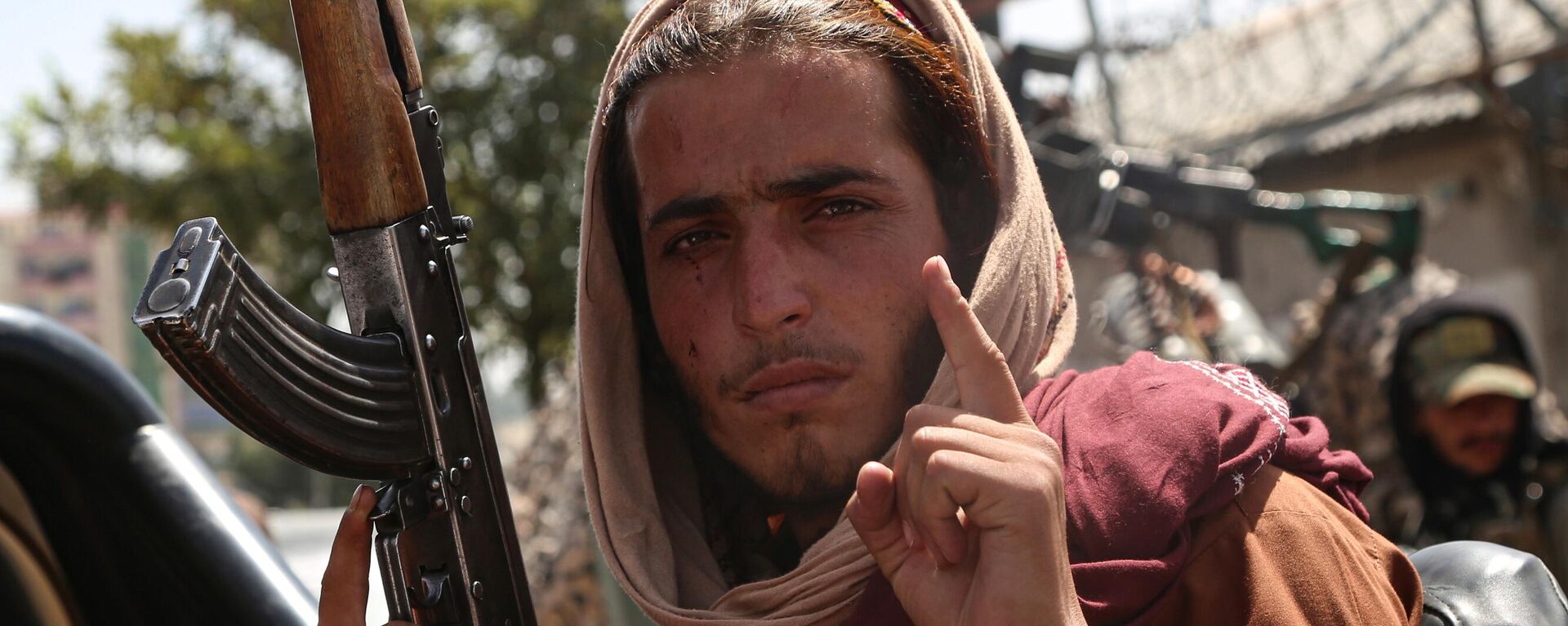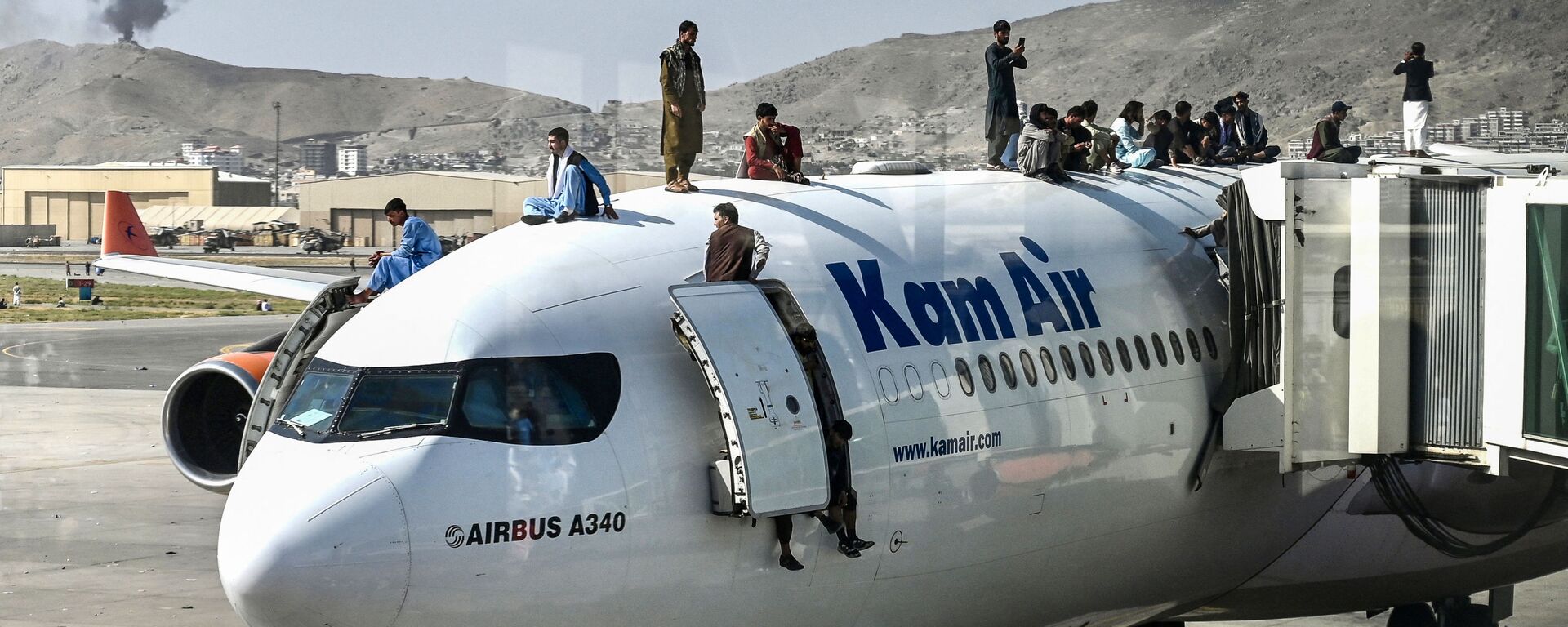'We Believed Kabul Would Fall': Former CENTCOM Chief Says US Brass Long Opposed Afghanistan Pullout
17:40 GMT 29.08.2022 (Updated: 17:43 GMT 29.08.2022)
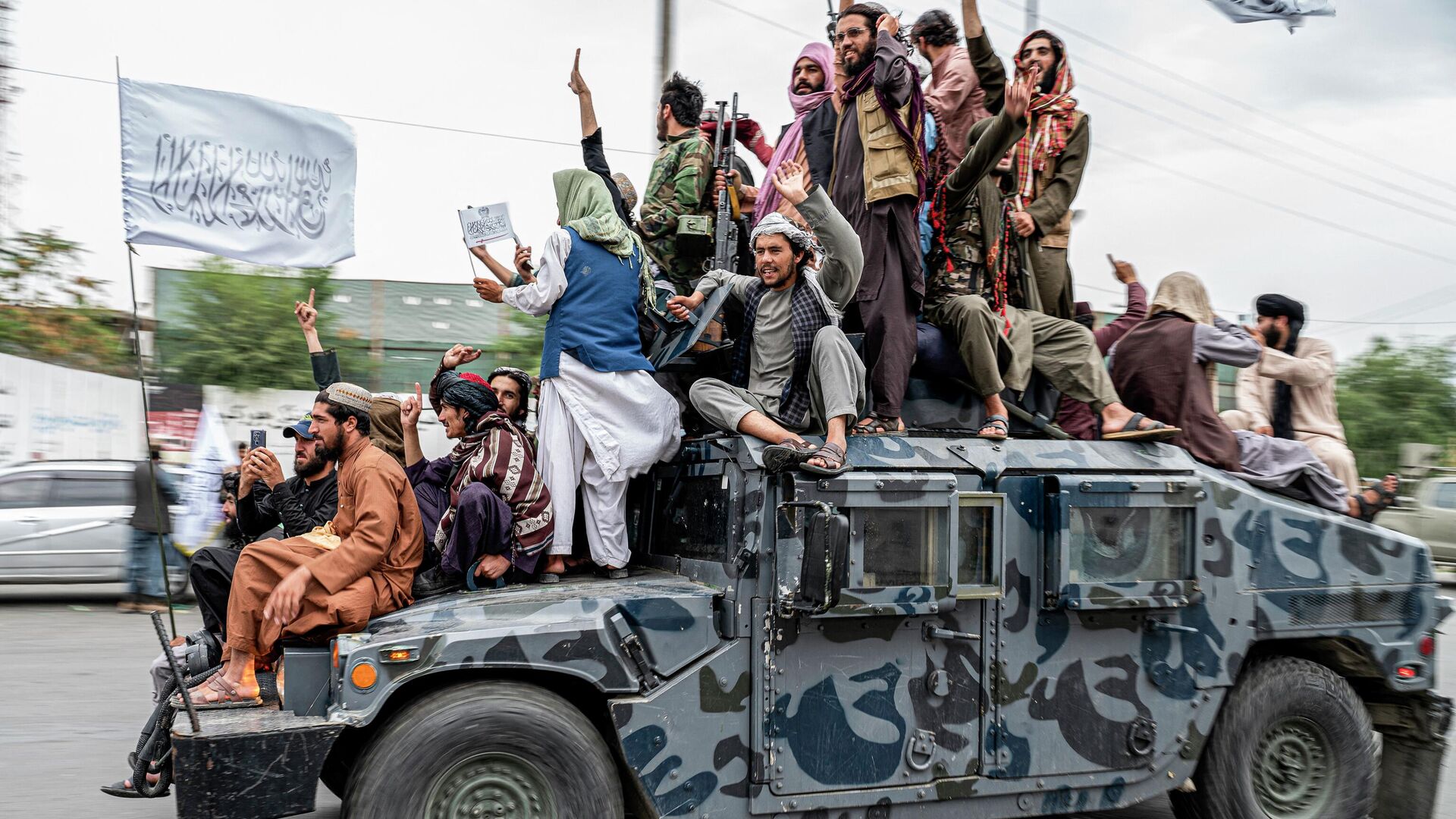
© AFP 2023 / Wakil Kohsar
Subscribe
The 20-year-long occupation of Afghanistan by the US caused the deaths of hundreds of thousands of people in combat, from collateral damage, or due to the disruptions of life that blocked access to medicine, food, water, or medical care in the underdeveloped nation. Millions more were forced from their homes as refugees.
On the one-year anniversary of the last US soldiers leaving Afghanistan, the man who was at the head of US Central Command (CENTCOM) at the time, US Marine Corps Gen. Kenneth "Frank" McKenzie, told the media that he and many of the US’ leading military figures had opposed plans to withdraw from the Central Asian country since they were proposed, believing the Taliban* was poised to sweep through the US-backed Afghan government.
Two weeks before the US withdrawal was complete, the Islamist militant group did exactly that, capturing Kabul without a fight after the government of then-Afghan President Ashraf Ghani fled the country. A surreal situation ensued as US and Taliban forces worked together to provide security for thousands of would-be refugees seeking to flee the country via Hamid Karzai International Airport, and Daesh** terrorists attempted to capitalize on the chaos by launching a terrorist attack on the crowds.
A year later, the Taliban is firmly in control, but the US has refused to recognize its government and ended nearly all aid, creating a massive humanitarian crisis in the country.
“I advised against withdrawing,” McKenzie, who oversaw the pullout, told Fox News on Sunday. “My recommendation and my opinion, and it remains so today, was we had the opportunity to remain in the country with a small force.”
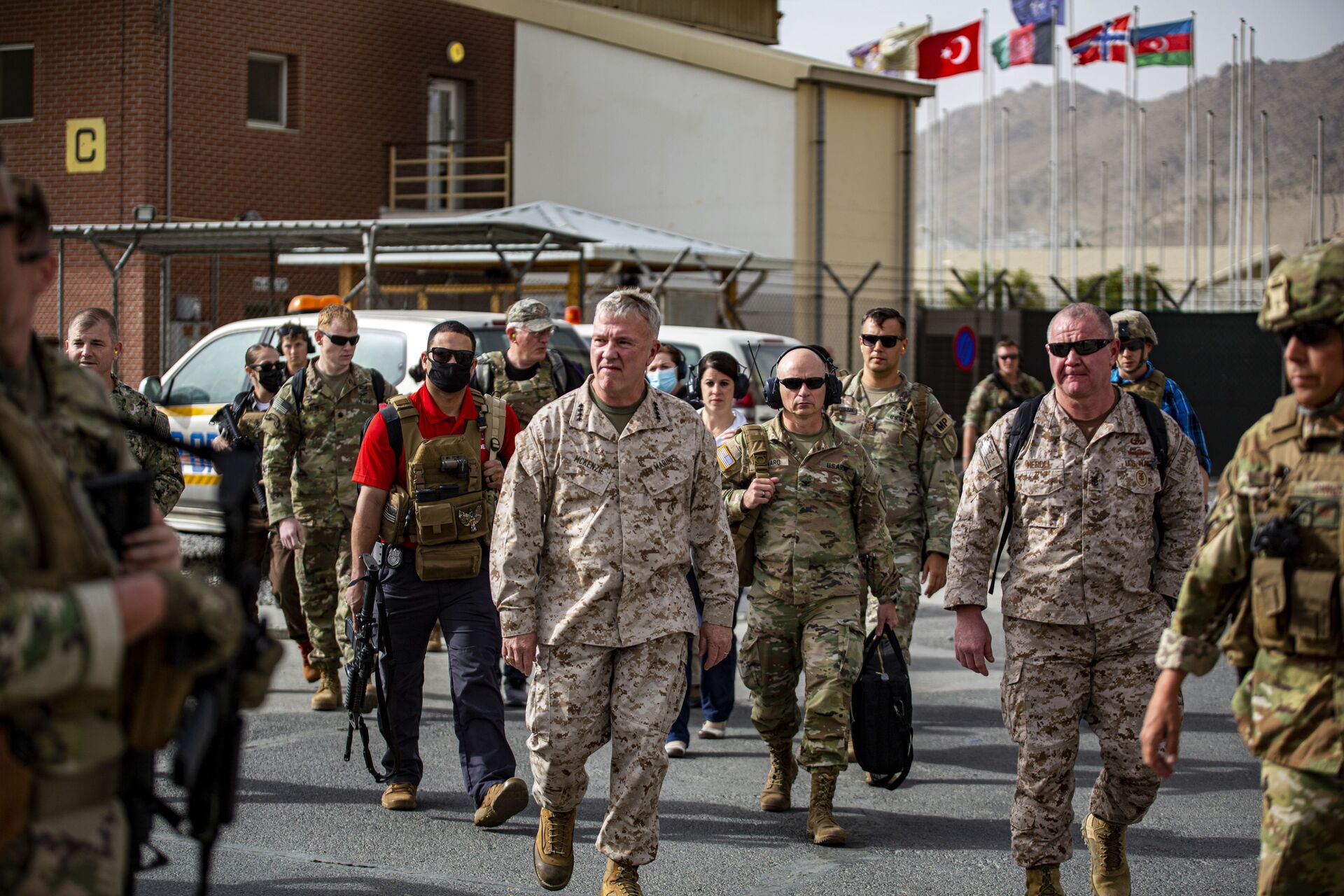
Commanding General U. Central Command Kenneth F. McKenzie, center, tours an evacuation control center at Hamid Karzai International Airport, Afghanistan, Tuesday, August 17, 2021
© AP Photo / Lt. Mark Andries
“I realize the Taliban could very well have chosen to attack us, but I do not believe based on the intelligence I was reading at the time that we would have, we would have been forced to add more forces in order to maintain, you know, 2,500 force level in Afghanistan,” he added.
Unstable Puppet
Under former US President Donald Trump, the US reached a deal with the Taliban in February 2020 for a ceasefire and to withdraw from the country in exchange for a pledge of peace talks with the US-backed Afghan government that had been set up after the US invaded more than 20 years ago. Those talks failed to produce a peace deal, much less a government of national unity, and as the May 1, 2021, withdrawal date neared, it became clear that US troops would not be out by then.
The Taliban then launched a new offensive against the government, steadily gaining ground as US troops continued to withdraw. By August 15, they had captured Kabul, and the following month declared the refoundation of the Islamic Emirate of Afghanistan that had existed prior to the US invasion.
“We believed that Kabul would fall if we pulled out our troops. It was just a question of when Kabul would fall,” McKenzie said.
“And we had been saying that really since the fall of the year before. That had been a consistent position of Central Command [and] our subordinates in Afghanistan, that if we leave, they're going to collapse,” he added. “It's just a question of when they're going to collapse.”
The US-backed government had received millions annually from Washington in various forms of aid, including paying the salaries of the Afghan security forces, construction products, military weapons, and food aid. However, audits of the “reconstruction” effort had long pointed to widespread corruption and waste, ranging from resold gasoline to funding for mystery projects and paychecks written for men who didn’t exist, or who had died.
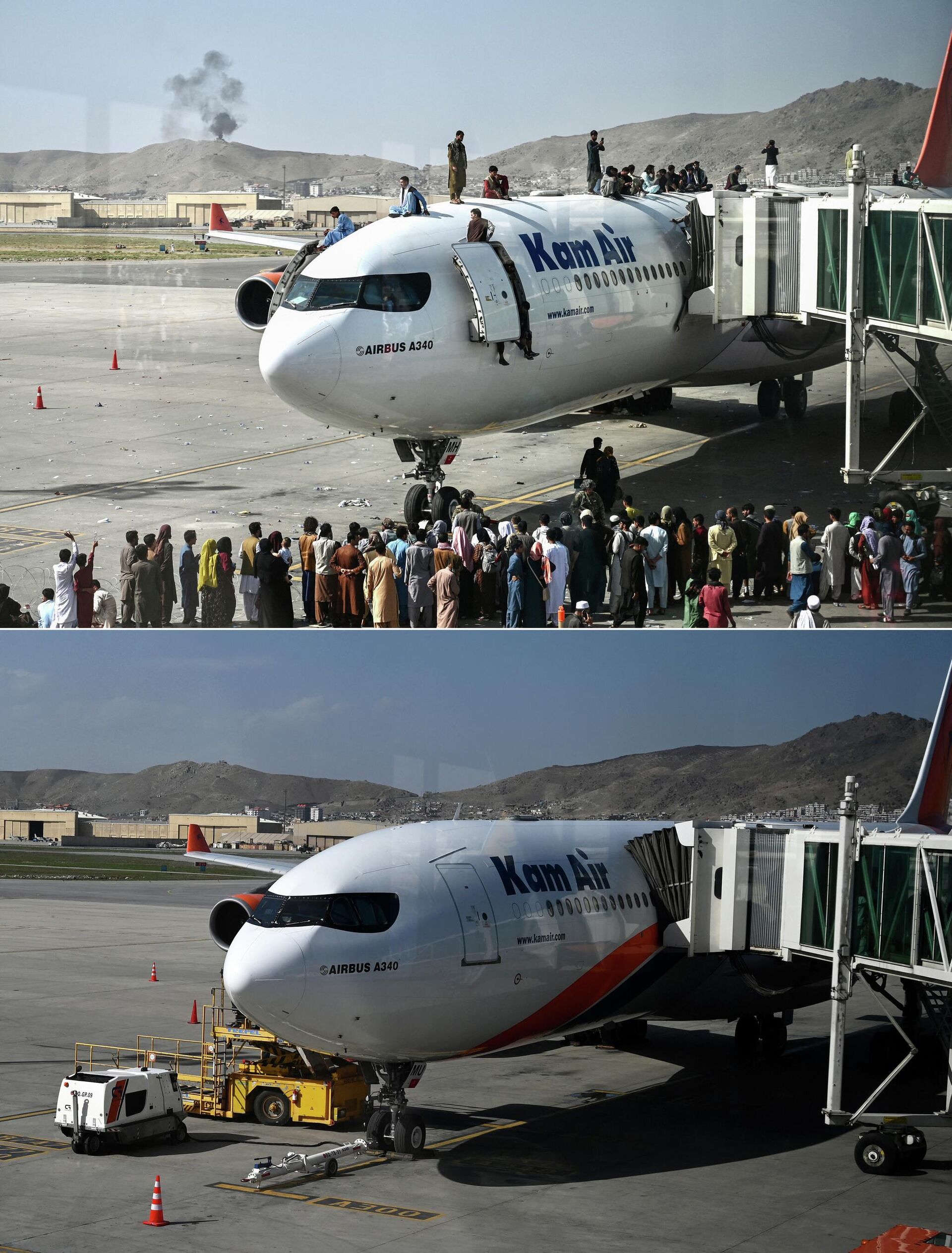
This combination of pictures created on August 10, 2022, shows (top) Afghan people climbing atop of a plane as they wait at the Kabul airport in Kabul on August 16, 2021, and (bottom) the same area of the airport taken on August 1, 2022.
© AFP 2023 / Wakil Kohsar
Biden Ignores Generals
McKenzie told Fox News the decision to withdraw and the decision to maintain an “embassy platform” in Kabul were made by US President Joe Biden, who “owns the final responsibility for these actions.”
“I believe we had two presidents of the United States that wanted to exit Afghanistan, and they might not have had anything else in common, but they shared that common view. So we had a continuity of objective across two administrations that really allowed the events that occurred to occur in the manner that they did,” he added.
Senior brass’ objections to the pullout did not go unnoted at the time, and after the withdrawal, US President Joe Biden was grilled about why he made the decision to pull out.
“[Y]our top military advisors warned against withdrawing on this timeline. They wanted you to keep about 2,500 troops,” ABC reporter George Stephanopoulos asked Biden in an interview four days after the Taliban captured Kabul.
“No, they didn't. It was split. Tha- that wasn't true. That wasn't true,” Biden replied.
“They didn't tell you that they wanted troops to stay?” Stephanopoulos asked.
“No. Not at - not in terms of whether we were going to get out in a timeframe all troops. They didn't argue against that,” Biden answered.
“So no one told - your military advisors did not tell you, ‘No, we should just keep 2,500 troops. It's been a stable situation for the last several years. We can do that. We can continue to do that?’" the ABC journalist asked again.
“No. No one said that to me that I can recall,” Biden said.
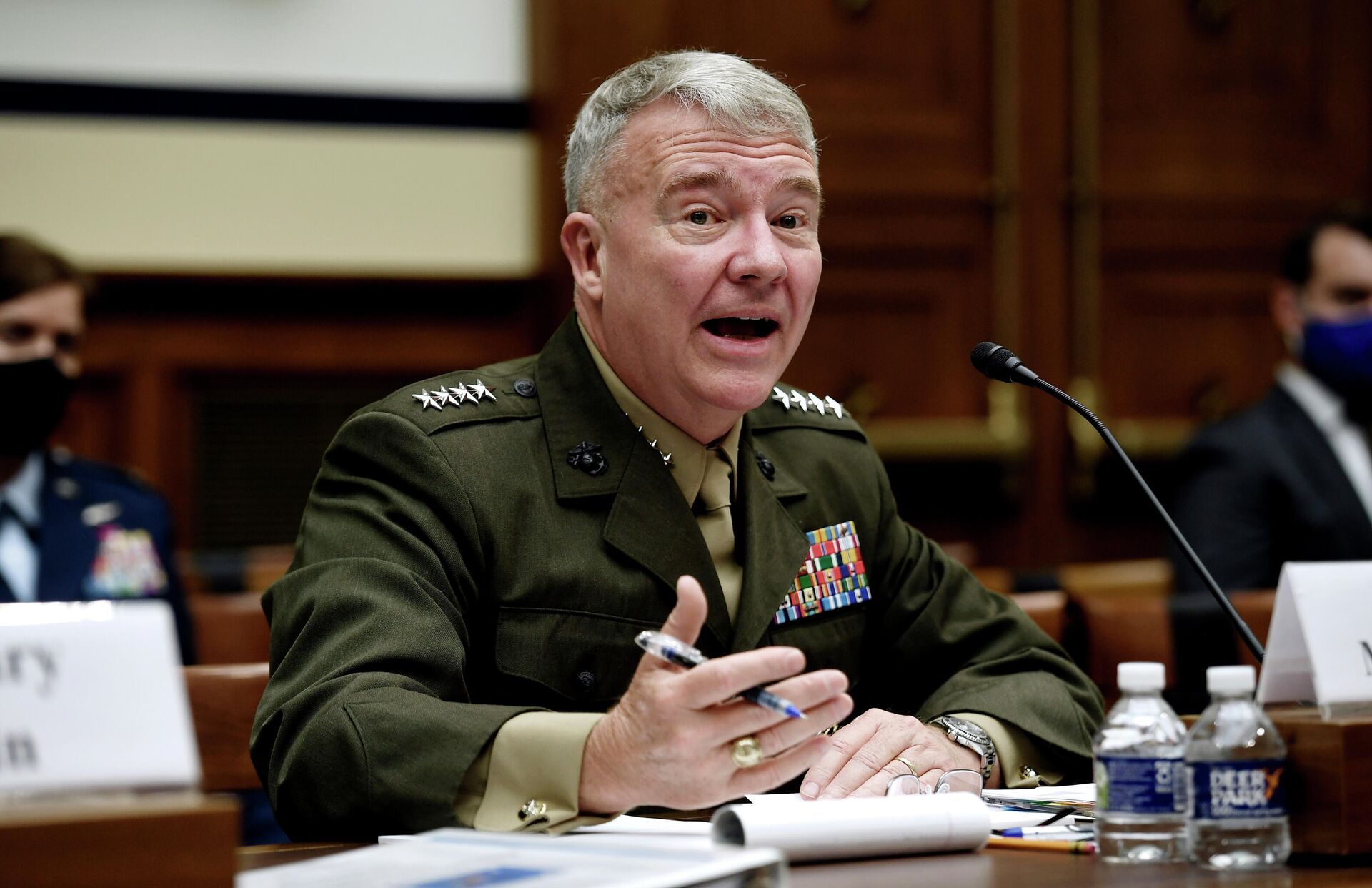
Marine Corps Gen. Kenneth F. McKenzie, commander of US Central Command, testifies before the House Armed Services Committee hearing on the conclusion of military operations in Afghanistan, Wednesday, Sept. 29, 2021, on Capitol Hill in Washington.
© Olivier Douliery
‘Hubris on Our Part’
In a separate interview with NBC News on Friday, McKenzie reflected on Washington’s mission in Afghanistan, which began in the wake of the September 11, 2001, terrorist attacks by al-Qaeda**. The Taliban government had given shelter to the terrorist group, and despite offers to arrest mastermind Osama bin Laden and surrender him to US custody, the US launched an invasion of Afghanistan anyway, overthrowing the Taliban and installing a republican form of government.
"We began to engage in nation-building operations and maybe some of that was necessary in a narrower sense to protect our interests, but the broader things we did probably ultimately in the long term didn't help us. They diffused our efforts," McKenzie said.
"I don't know that Afghanistan is governable or sustainable with a Western model. I know that Afghanistan is governable and sustainable from an Afghan model. But we paid too little attention to Afghan realities on the ground," he said.
He called it "hubris on our part, and on the international community,” to have overlooked the realities of the Central Asian country.
He added that one of the major reasons the US was never able to totally eradicate the Taliban was that it had bases across the Pakistani border to which it could retreat and regroup, and that two decades of talks with Islamabad had never yielded a satisfactory solution to that problem.
“The reason that’s the case is that the Pakistanis never believed we would stay. They always thought that we would leave, and that underpinned every time they sat down and talked to us,” McKenzie said. “And you know what? They were right. We left.”
*Taliban is under UN sanctions for terrorist activities.
*Daesh, also known as IS/ISIS/Islamic State and Al-Qaeda are terrorist groups outlawed in Russia and many other countries.

